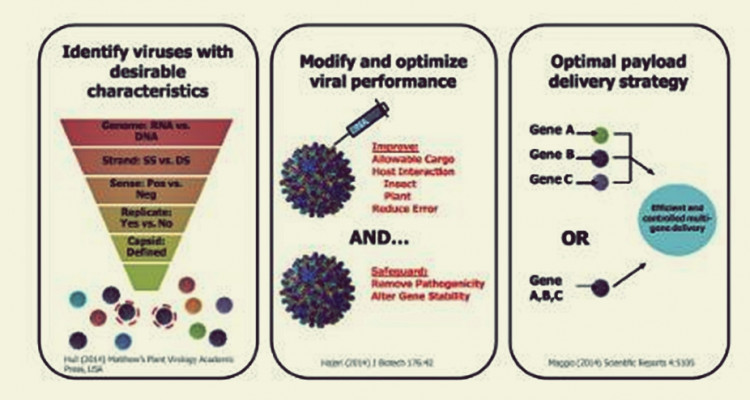An ongoing program led by the U.S. Defense Advanced Research Projects Agency (DARPA) using insects to protect U.S. grain supplies is now being criticized for its potential to use these same insects to devastate the agriculture and food supplies of countries unfriendly to the United States.
The program called Insect Allies was launched in 2016. Its stated goal is to prevent crop failure driven by climate change and pathogens. The program will attain this aim by using as yet unspecified insects to deliver a genetically engineered virus that will improve crop growth by altering which genes the plants express, or pass on to succeeding generations.
In the words of Dr. Blake Bextine, program manager for Insect Allies, this endeavor will pursue scalable, readily deployable, and generalizable countermeasures against potential natural and engineered threats to the U.S. food supply. The program goal is to preserve the U.S. crop system.
But the greatest challenge will be to reap the effects within a single growing season, which will be an incredible breakthrough if attained.
The progress being made by Insect Allies appears rapid. Phase One of the Insect Allies is scheduled to end late this year. Success in this phase is defined as the successful delivery of a genetically modified virus to an insect.
Phase Two will last from late 2018 to early 2020. It will involve genetically adjusting the viruses, insects, and plants so the gene delivery can successfully thrive in a monoculture. Phase Three from early 2020 to mid-2021 will involve observing the project on a larger scale in complex crop environments. From this point on, it will either be gone or no go for implementing the program in the real world.
Concerned scientists from around the world, however, are now expressing their concern over the program's potential to be used as an offensive biological weapon against the food supplies of countries hostile to the U.S.
Scientists from the Max Planck Institute for Evolutionary Biology and the University of Freiburg in Germany, and France's Université de Montpellier, are asking DARPA for more transparency about the progress being made by Insect Allies. The scientists also demand opportunities for public discussion regarding the project and its implications.
They said easy simplifications to the program could be used to generate a new class of biological weapons. They fear these new weapons will be "extremely transmissible to susceptible crop species due to insect dispersion as the means of delivery."
DARPA quickly denied any intent to deploy technology developed through Insect Allies in an offensive setting.
In a statement, DARPA said it created Insect Allies specifically to develop technology that can deliver positive, protective traits to plants to help them survive unanticipated and/or fast-moving agricultural threats. It sees Insect Allies as "a critical addition to the national security toolkit, part of a layered strategy to preserve the security of the food supply."






